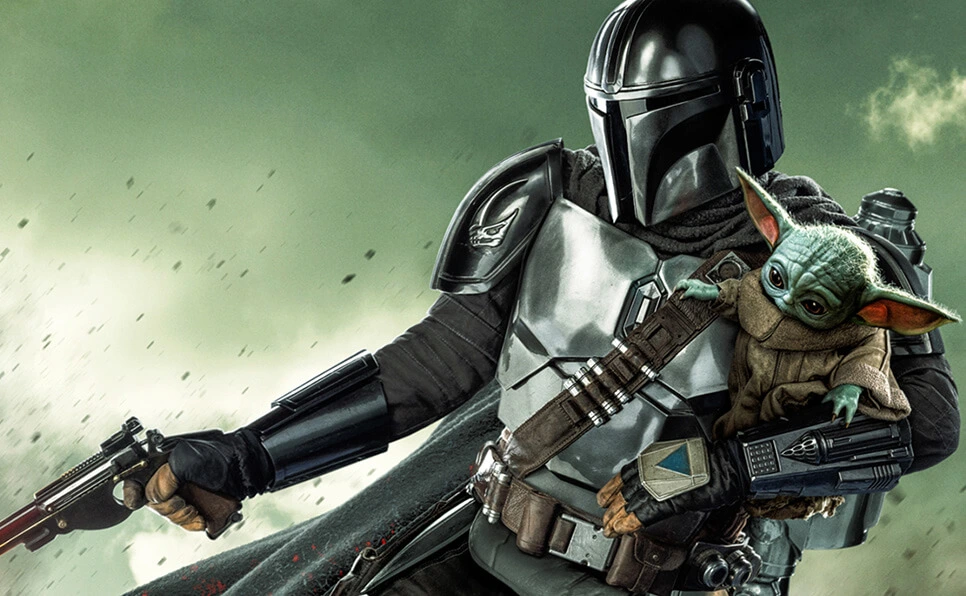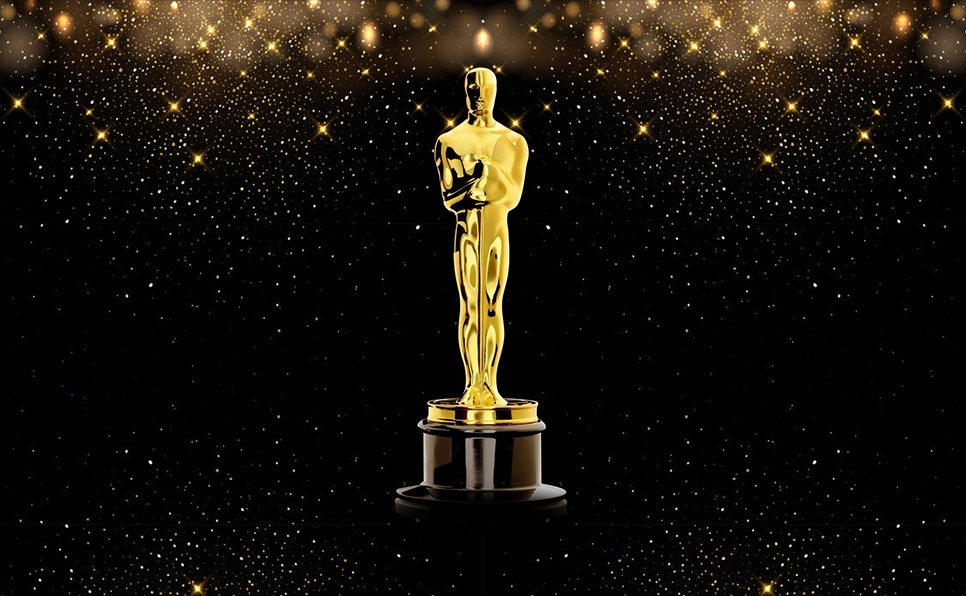There are excellent films. There are poor films. Then there are films that were criminally underappreciated but have finally received the recognition they merit. The film industry is inundated with hundreds of movies every year, so many that we can overlook the underrated gems that are overshadowed by blockbusters and movies that are painfully dull but will still receive nominations during award season (shade, but no shade).
But that’s over now. Finally, from corny rom-coms to motivational true story movies, we’re giving the films that ought to be sleeper hits the roses they merit while we still have the chance.
Here are some of the most underappreciated but most deserving movies of all time.
The Iron Giant (1999)
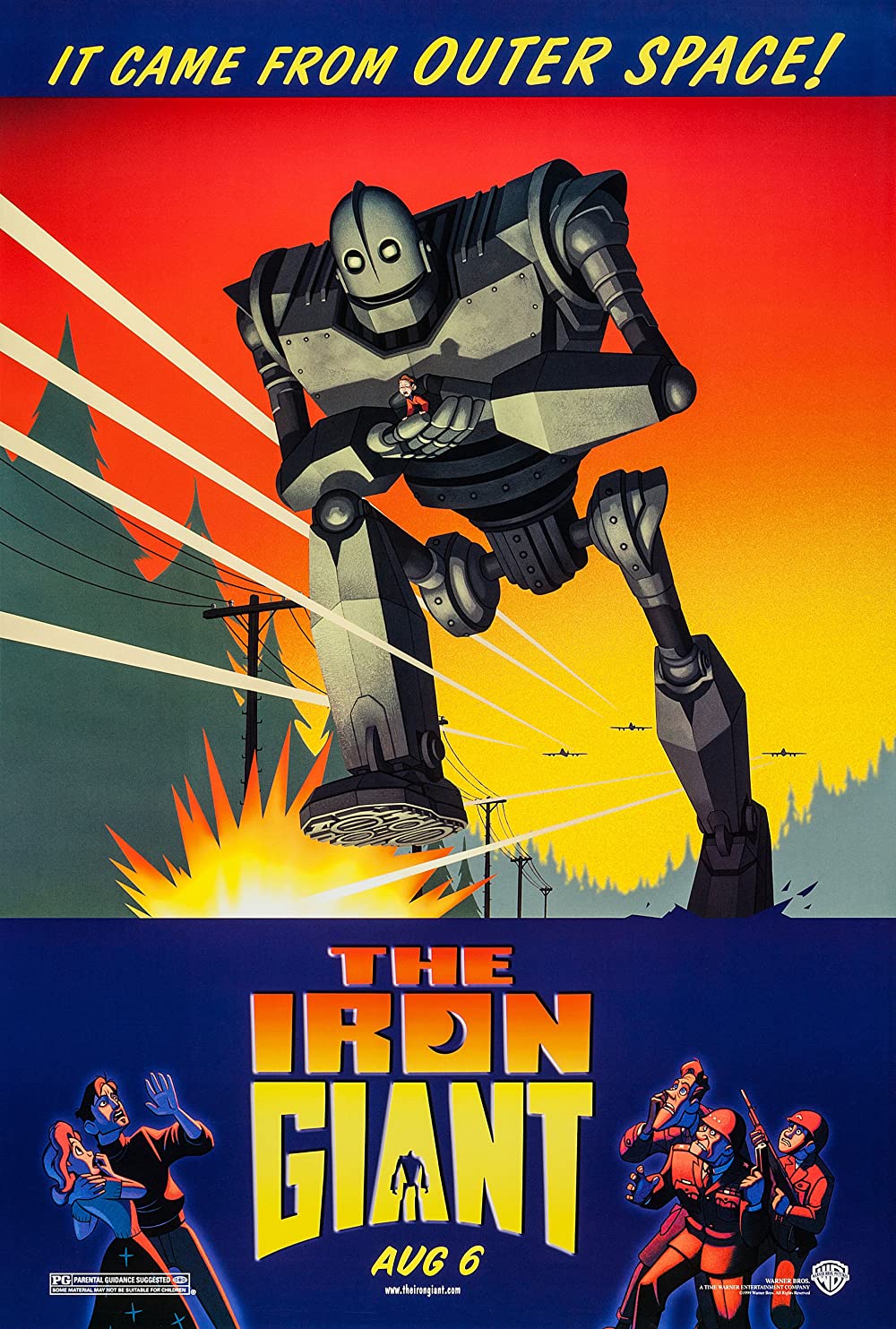
“The Iron Giant” is a 1999 animated science fiction film directed by Brad Bird. The plot follows a young boy named Hogarth Hughes who discovers and befriends a giant alien robot that has crashed on Earth. As the government becomes aware of the robot’s existence, Hogarth must protect his new friend from being destroyed.
Despite receiving positive reviews from critics, “The Iron Giant” did not perform well at the box office upon its release. However, it has since become a beloved cult classic among fans of animation and science fiction.
One reason for its underrated status may be due to its release during a time when traditional hand-drawn animation was losing popularity to computer-generated animation. Additionally, the film’s marketing campaign may have been ineffective in generating interest.
The themes of “The Iron Giant” center around the dangers of war and the importance of empathy and understanding. The relationship between Hogarth and the robot highlights the power of compassion and connection, even between beings that are vastly different. The film’s impact can be seen in its influence on later animated films, as well as its messages of peace and understanding that remain relevant today.
Blade Runner (1982)
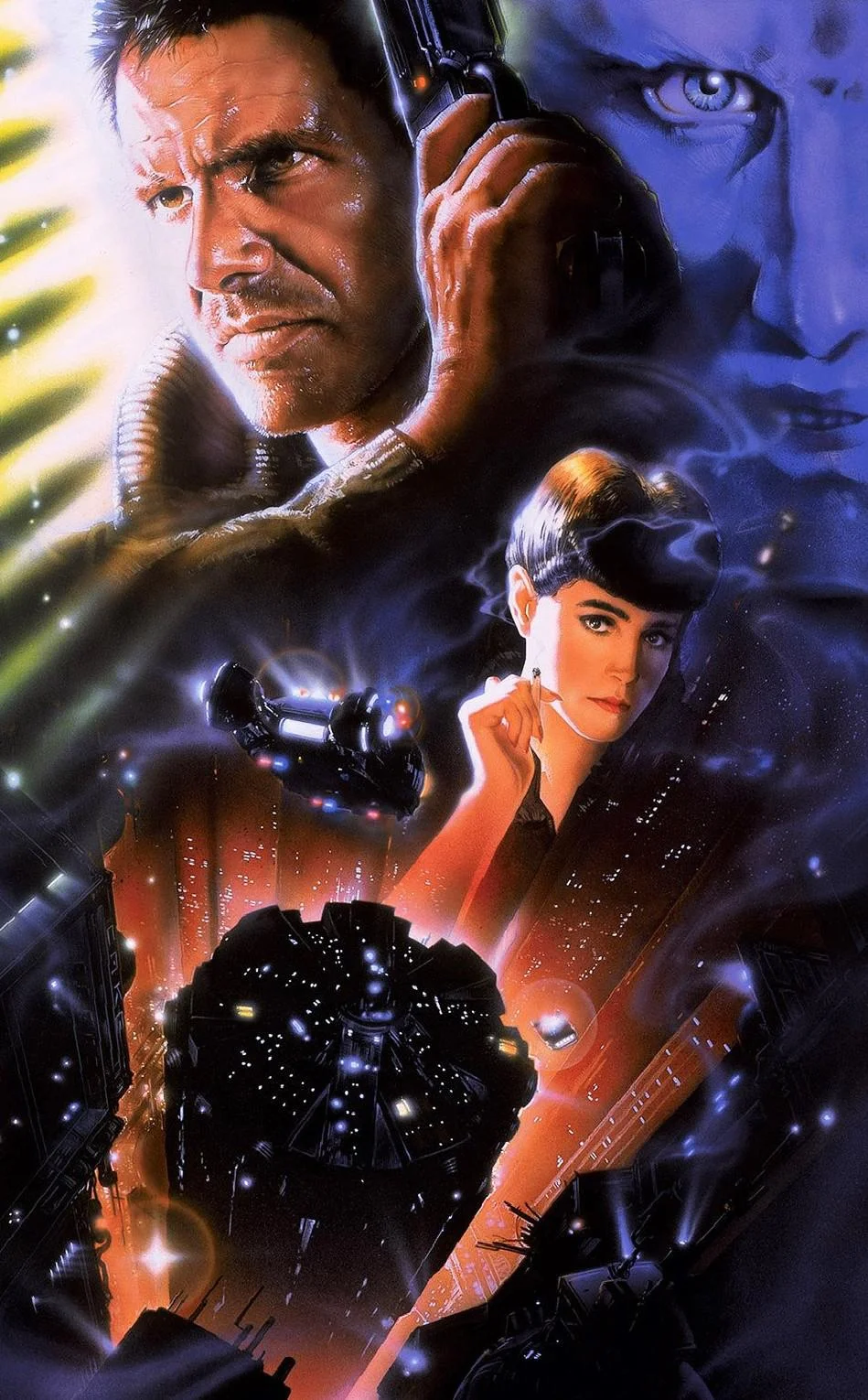
“Blade Runner” is a 1982 science fiction film directed by Ridley Scott, adapted from the novel “Do Androids Dream of Electric Sheep?” by Philip K. Dick. The story takes place in a dystopian future where genetically engineered replicants are used for dangerous work in off-world colonies, but are banned on Earth. Harrison Ford plays Rick Deckard, a retired “Blade Runner” tasked with hunting down a group of rogue replicants led by Roy Batty (Rutger Hauer), who have returned to Earth seeking answers from their creator.
The film received mixed reviews upon its initial release, with some praising its stunning visuals and philosophical themes, while others criticized its slow pacing and convoluted plot. However, over time, “Blade Runner” has become a cult classic and is now widely regarded as one of the greatest science fiction films of all time.
The film’s initial critical reception may have been due to its departure from traditional sci-fi tropes at the time, as well as its ambiguous and thought-provoking themes, which may have been difficult for some audiences to fully grasp. Additionally, the film’s multiple cuts and different endings may have also contributed to its initial confusion and mixed reviews.
“Blade Runner” explores complex themes such as identity, humanity, and what it means to be alive. The film’s central question is whether the replicants, despite being artificially created, deserve the same rights and freedoms as humans. This question continues to be relevant today, as we grapple with the ethical implications of artificial intelligence and robotics.
The film’s impact on science fiction cannot be overstated, as it has influenced countless other films and TV shows in the genre. Its dark, neo-noir visual style has become iconic, and its themes and ideas continue to inspire new generations of sci-fi storytellers.
The Assassination of Jesse James by the Coward Robert Ford (2007)
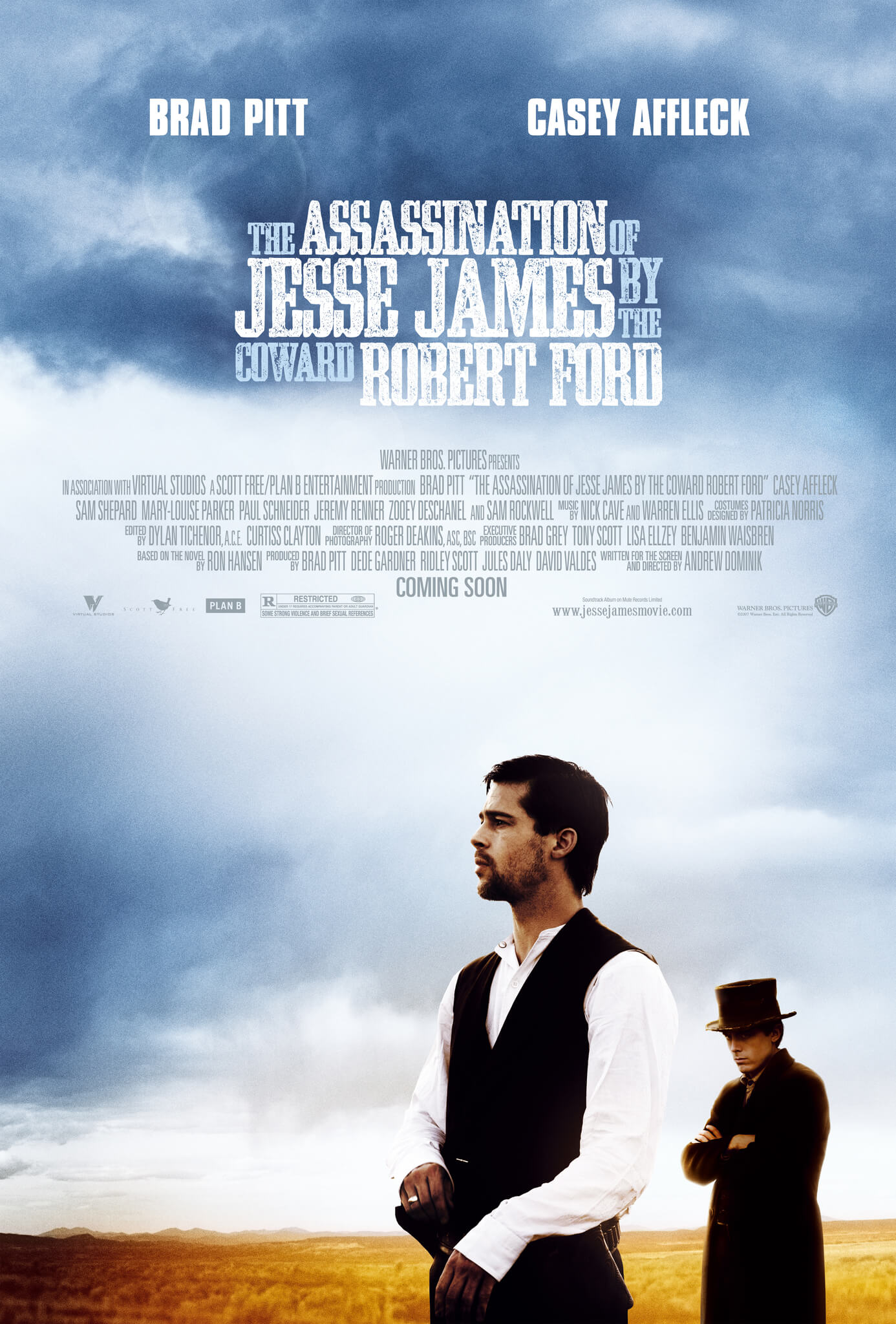
“The Assassination of Jesse James by the Coward Robert Ford” is a 2007 Western film directed by Andrew Dominik, based on the novel of the same name by Ron Hansen. The film follows the last months of infamous outlaw Jesse James (Brad Pitt) and his eventual assassination by Robert Ford (Casey Affleck), a member of James’ gang who becomes obsessed with the idea of killing him for fame and fortune.
The film received critical acclaim upon its release, with many praising its slow-burning tension, stunning cinematography, and powerful performances, particularly by Brad Pitt and Casey Affleck. However, it was a commercial disappointment, failing to recoup its budget at the box office.
The film’s lack of commercial success and slow pacing may have contributed to its underrated status. Additionally, its release was overshadowed by the success of other films during the awards season, such as “No Country for Old Men” and “There Will Be Blood”.
At its core, “The Assassination of Jesse James by the Coward Robert Ford” is a character study of two men: Jesse James, a charismatic but troubled outlaw, and Robert Ford, a young and insecure member of his gang. The film explores themes of fame, obsession, betrayal, and the nature of heroism. Its nonlinear structure and atmospheric score create a haunting, dreamlike atmosphere that adds to the film’s impact.
The film’s impact on the Western genre is significant, as it challenged the traditional portrayal of heroes and villains and humanized its characters in a way that was not often seen in Westerns. It also marked a turning point for Brad Pitt’s career, showcasing his range as an actor and his ability to play complex, nuanced characters.
Brazil (1985)
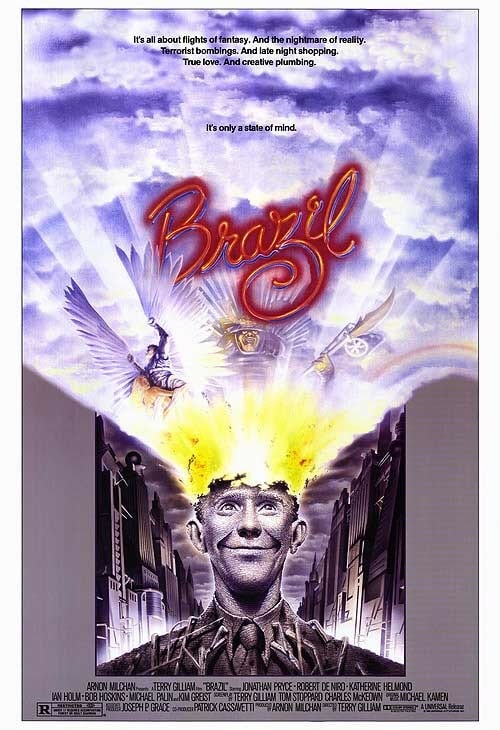
“Brazil” a 1985 dystopian science fiction film directed by Terry Gilliam. The story is set in a dark, bureaucratic society where the government’s power is absolute and individuals have no rights or privacy. The protagonist, Sam Lowry (Jonathan Pryce), is a low-level government worker who becomes disillusioned with his meaningless job and falls in love with a woman who has been wrongly accused of being a terrorist.
The film received positive reviews from critics, with many praising its surreal visuals, dark humor, and powerful commentary on the dangers of totalitarianism. However, it was not a commercial success at the time of its release.
The film’s dark humor and unconventional storytelling may have contributed to its underrated status, as it did not fit neatly into any specific genre or narrative style. Additionally, its release was plagued by behind-the-scenes conflicts, including battles with the studio over the film’s final cut.
“Brazil” is a biting satire that explores the dangers of unchecked government power and the dehumanization that can result from living in a bureaucratic society. The film’s visual style is a mix of dystopian and retro-futuristic elements that create a unique and immersive world. Its themes are particularly relevant in today’s society, where concerns about government surveillance, censorship, and authoritarianism are growing.
The film’s impact on popular culture is significant, as it has influenced countless other works of dystopian fiction, such as “The Hunger Games” and “Black Mirror.” It also cemented Terry Gilliam’s reputation as a visionary filmmaker who was unafraid to push the boundaries of traditional storytelling. Despite its initial lack of commercial success, “Brazil” has become a cult classic and is now widely regarded as one of the greatest science fiction films ever made.
Children of Men (2006)
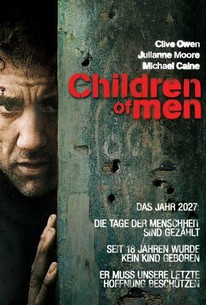
“Children of Men” is a 2006 dystopian science fiction film directed by Alfonso Cuarón, based on the novel of the same name by P.D. James. The film is set in a future where humanity has become infertile, and no new children have been born for 18 years. The story follows Theo Faron (Clive Owen), a former activist who is recruited by a group of revolutionaries to help transport a pregnant woman to safety in a world where children have become the most valuable resource.
The film received critical acclaim upon its release, with many praising its stunning visuals, intense action sequences, and powerful performances by Clive Owen and Julianne Moore. However, it was not a commercial success, only making back its budget at the box office.
The film’s dark and bleak themes, as well as its graphic violence, may have contributed to its underrated status. Additionally, its release was overshadowed by other films during the awards season, such as “The Departed” and “Babel.”
“Children of Men” is a haunting meditation on the fragility of human existence and the importance of hope and resilience in the face of overwhelming despair. Its themes of immigration, nationalism, and authoritarianism are particularly relevant in today’s political climate. The film’s stunning cinematography, innovative use of long takes, and intense action sequences create a visceral and immersive experience for the viewer.
The film’s impact on the science fiction genre is significant, as it challenged traditional ideas of what a science fiction film could be and explored complex social and political issues in a way that was not often seen in mainstream films. It also marked a turning point in the careers of Alfonso Cuarón and Clive Owen, solidifying their reputations as visionary director and actor, respectively. Despite its initial lack of commercial success, “Children of Men” has become a cult classic and is now widely regarded as one of the greatest science fiction films ever made.
The Fountain (2006)
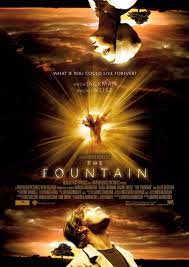
“The Fountain” (2006) is a visually stunning film that tells the story of three interwoven narratives, all revolving around the quest for eternal life. The first narrative follows Spanish conquistador Tomas Verde (Hugh Jackman) as he searches for the Tree of Life, a legendary source of eternal youth. The second narrative follows scientist Tommy Creo (Hugh Jackman) as he races to find a cure for his dying wife Izzi (Rachel Weisz), who is writing a book about Tomas Verde’s journey. The third narrative follows a bald-headed man (Hugh Jackman) traveling through space in a bubble with a dying tree, trying to reach a nebula that he believes holds the key to eternal life. The film explores themes of love, death, spirituality, and the search for meaning in life.
“The Fountain” received mixed reviews from critics upon its release. While some praised the film’s visuals and ambition, others criticized its non-linear storytelling and lack of narrative coherence. It currently holds a 51% approval rating on Rotten Tomatoes.
One reason for the underrated status of “The Fountain” could be its unconventional storytelling and complex themes. The film’s non-linear structure and metaphysical themes may have alienated some audiences who were expecting a more straightforward narrative. Additionally, the film’s marketing campaign may have misrepresented the film as a traditional sci-fi adventure rather than an introspective exploration of mortality and the human condition.
“The Fountain” is a deeply philosophical film that explores the themes of life, death, and the search for meaning. The film’s three narratives are connected by the recurring motif of the Tree of Life, which represents the eternal quest for immortality. The film suggests that the quest for eternal life is ultimately futile, as death is an essential part of the cycle of life.
However, the film also suggests that the human spirit can transcend death through love, art, and spiritual enlightenment. The film’s striking visual imagery, including the use of fractal patterns and vivid colors, adds to the film’s otherworldly and mystical tone. “The Fountain” is a challenging film that rewards repeated viewings and careful contemplation, and it is a testament to director Darren Aronofsky’s ambitious and visionary filmmaking.
The Insider (1999)
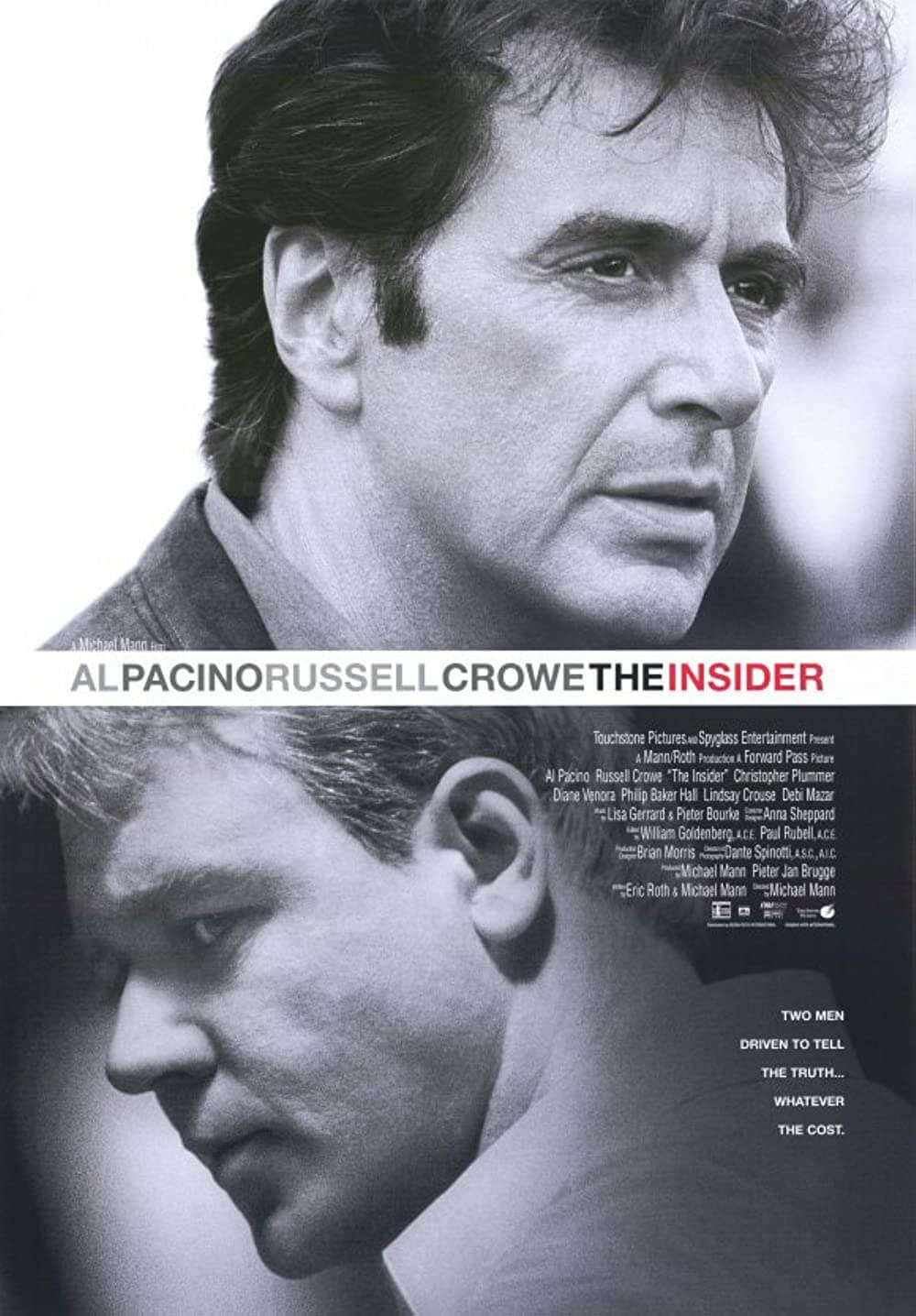
“The Insider” (1999) is a political drama film based on a true story. It follows the story of Jeffrey Wigand (Russell Crowe), a former tobacco industry executive who becomes a whistleblower and reveals that his former employer, Brown & Williamson, knew that cigarettes were addictive and intentionally increased the levels of nicotine in their products. Wigand’s decision to go public with this information puts him and his family in danger, and he is pressured by both the tobacco industry and the media. Producer Lowell Bergman (Al Pacino) helps Wigand tell his story to the public through an interview with “60 Minutes” journalist Mike Wallace (Christopher Plummer).
The film received critical acclaim and was nominated for seven Academy Awards, including Best Picture, Best Director (Michael Mann), and Best Actor (Russell Crowe). It currently holds a 96% approval rating on Rotten Tomatoes.
The movie is often considered underrated because it did not perform well at the box office, despite its critical success. The film’s slow-paced narrative and lack of action may have turned off some viewers who were expecting a more traditional thriller.
It explores themes of corporate corruption, journalistic integrity, and the power of the media. The film shows how corporate interests can influence public opinion and the media, and how whistleblowers who speak out against powerful industries can face personal and professional consequences. The film also raises questions about the responsibility of journalists to report the truth and the ethics of using confidential sources.
“The Insider” had a significant impact on the tobacco industry, as it brought to light the unethical practices of tobacco companies and helped to increase public awareness of the dangers of smoking. The film is a powerful reminder of the importance of speaking truth to power and the impact that one person can have on a larger social issue.
The Nice Guys (2016)
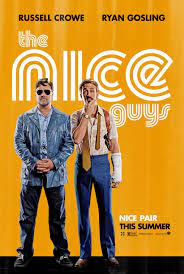
“The Nice Guys” (2016) is a neo-noir buddy comedy film set in Los Angeles in the 1970s. The film follows private investigator Holland March (Ryan Gosling) and hired enforcer Jackson Healy (Russell Crowe) as they team up to investigate the disappearance of a young woman named Amelia (Margaret Qualley). As they delve deeper into the case, they uncover a conspiracy involving the automotive industry, the U.S. Department of Justice, and the pornographic film industry.
The movie received positive reviews from critics and currently holds an 91% approval rating on Rotten Tomatoes. However, the film was not a box office success and has been somewhat underrated by audiences.
One reason for the underrated status of “The Nice Guys” could be its marketing campaign, which failed to accurately represent the film as a comedic and action-packed neo-noir. The film’s release in the midst of the crowded summer blockbuster season may have also contributed to its lackluster box office performance.
The plot explores themes of corruption, power, and justice. The film takes a satirical look at the American dream and the darker side of capitalism, as it portrays the automotive industry as being willing to kill in order to protect its interests. The film also touches on issues of masculinity and fatherhood, as Holland March struggles to connect with his teenage daughter Holly (Angourie Rice) and Jackson Healy tries to reconcile with his estranged daughter.
Despite its comedic tone, “The Nice Guys” is a thought-provoking film that offers a commentary on American society and culture in the 1970s. The film’s blend of humor and social commentary has made it a cult classic among fans of neo-noir and buddy comedies.
The Prestige (2006)
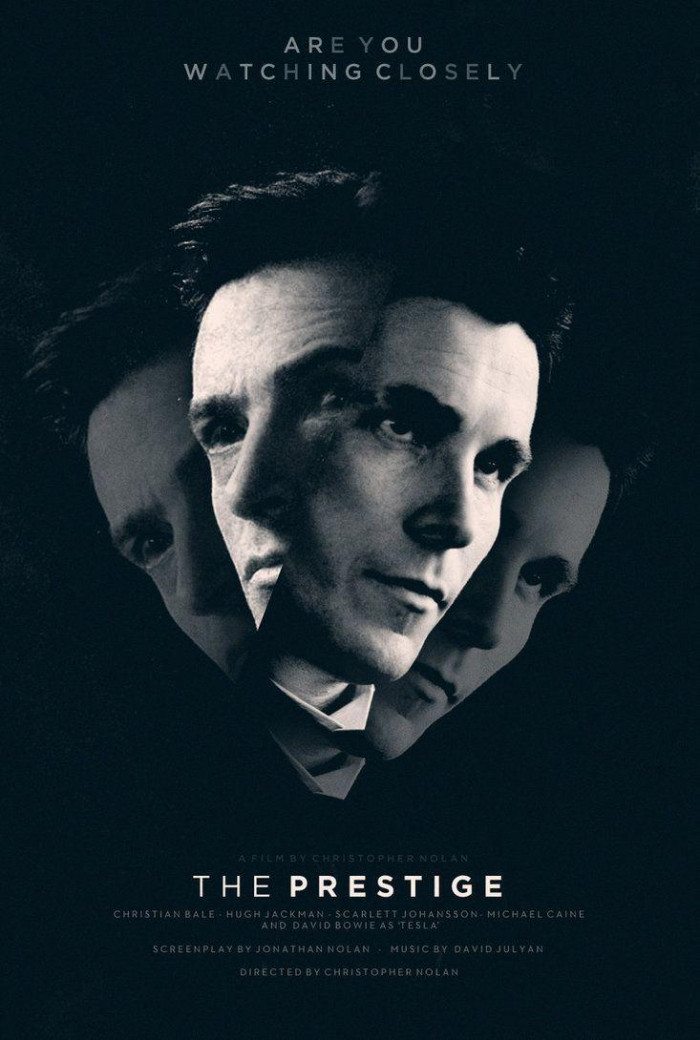
“The Prestige” (2006) is a mystery thriller film directed by Christopher Nolan. The film is set in Victorian-era London and follows two magicians, Robert Angier (Hugh Jackman) and Alfred Borden (Christian Bale), who become bitter rivals after a tragic accident during one of their performances. The film explores the themes of obsession, sacrifice, and the lengths people will go to achieve their goals, as both magicians become obsessed with creating the ultimate magic trick, the “transported man.”
It has received positive reviews from critics and currently holds a 76% approval rating on Rotten Tomatoes. However, it was not as commercially successful as Nolan’s later films like “Inception” and “The Dark Knight.”
One reason for the underrated status of this film could be that it was released in the same year as another highly acclaimed Nolan film, “The Dark Knight.” The film’s slow-paced narrative and complex plot may have also turned off some viewers who were expecting a more traditional thriller.
Its is a film that explores themes of sacrifice, obsession, and the blurred line between illusion and reality. The film examines the price of ambition and how the desire for success can consume people’s lives, driving them to commit unspeakable acts. The film’s exploration of the nature of magic and illusion raises questions about the power of storytelling and how our perception of reality can be manipulated.
“The Prestige” also examines the theme of revenge and how it can lead to a cycle of destruction and pain. The film’s impact can be seen in its influence on later works, including the television series “Westworld,” which also explores themes of reality and illusion. Overall, the movie is a thought-provoking film that delves deep into the human psyche, leaving a lasting impression on audiences.
The Secret of NIMH (1982)
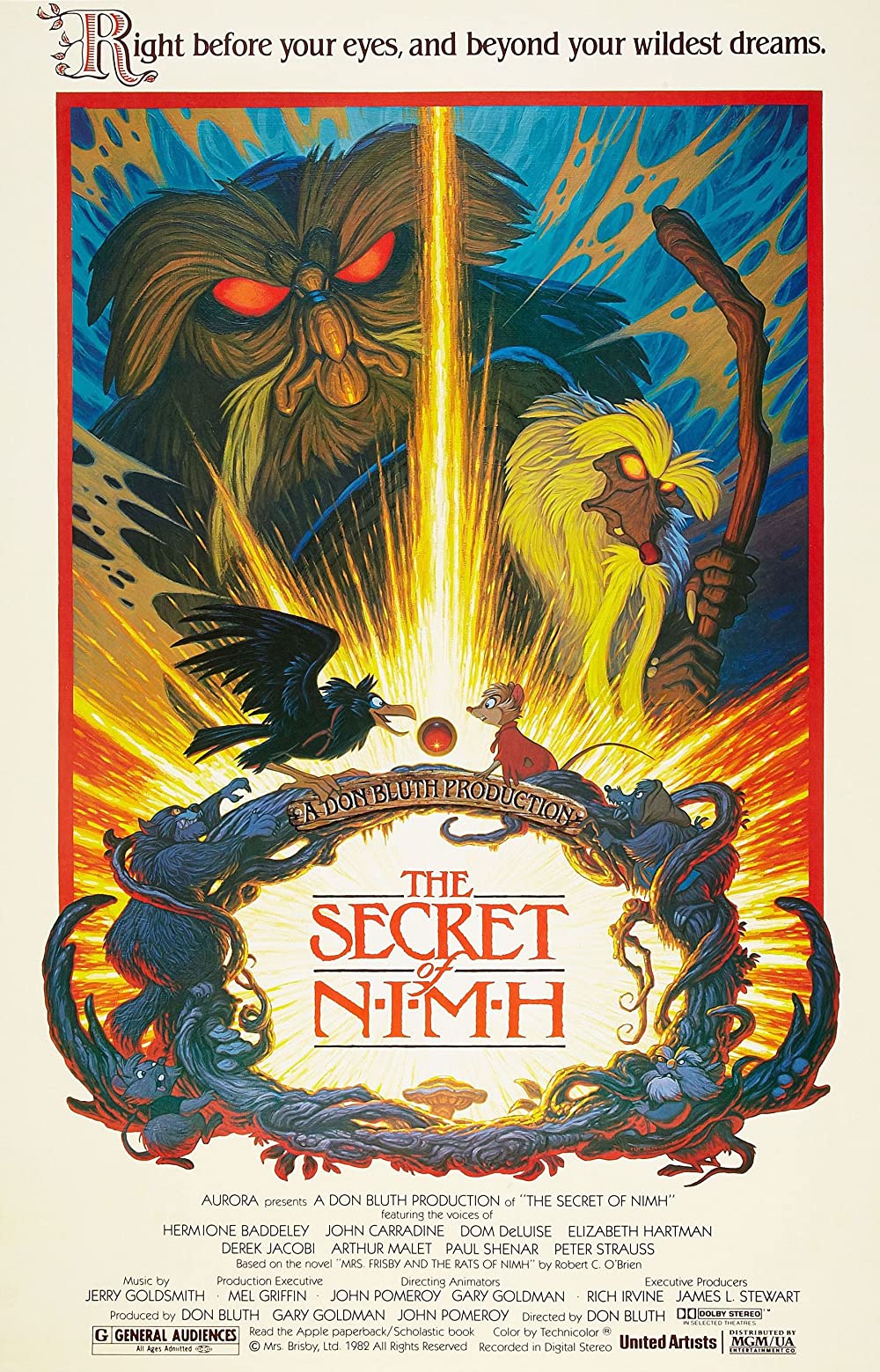
“The Secret of NIMH” (1982) is an animated adventure film directed by Don Bluth, based on the novel “Mrs. Frisby and the Rats of NIMH” by Robert C. O’Brien. The film follows Mrs. Brisby (Elizabeth Hartman), a widowed field mouse, as she seeks help from a group of highly intelligent rats who live beneath a rose bush. Mrs. Brisby’s home is in danger of being destroyed by a farmer’s plow, and she must rely on the rats and their leader, Nicodemus (Derek Jacobi), to save her family and friends.
The movie received positive reviews from critics and currently holds an 96% approval rating on Rotten Tomatoes. However, it was not as commercially successful as other animated films released in the same year, such as “E.T. the Extra-Terrestrial” and “An American Tail.”
One reason for the underrated status of “The Secret of NIMH” could be its release during a highly competitive year for animated films, as well as its relatively dark and complex storyline, which may have been less appealing to younger audiences.
Explorations of themes of bravery, family, and the power of intelligence has been done in this movie. The film portrays the rats as highly intelligent beings who have escaped from a laboratory where they were experimented on, and who have developed their own society based on their superior intelligence. The film also touches on the theme of environmentalism, as the rats and other animals must work together to save their home from destruction.
“The Secret of NIMH” has had a significant impact on the animation industry, with its mature and complex storyline paving the way for other animated films that take on darker and more complex themes. The film has also gained a cult following over the years, with fans appreciating its beautiful animation, memorable characters, and thought-provoking themes.
In the climax
Finally, we explored the top 10 most underrated movies of all time, including:
- “Blade Runner” (1982)
- “Children of Men” (2006)
- “The Iron Giant” (1999)
- “The Princess Bride” (1987)
- “The Assassination of Jesse James by the Coward Robert Ford” (2007)
- “The Fountain” (2006)
- “The Insider” (1999)
- “The Nice Guys” (2016)
- “The Prestige” (2006)
- “The Secret of NIMH” (1982)
It is important to recognize and appreciate the most underrated movies of all time because they often offer unique and thought-provoking perspectives that may be overlooked by mainstream audiences. These films often take risks with their storytelling and push the boundaries of traditional filmmaking, making them valuable contributions to the art of cinema.
We encourage viewers to explore the world of underrated movies and discover the hidden gems that may have been overlooked in the past. By supporting these films, we can help to promote creativity and diversity in the film industry, and ensure that important stories are given the attention they deserve. So go ahead and give some of these underrated films a chance – you may just discover your new favorite movie.


